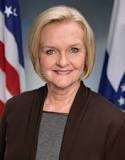Politicians and government officials have been turning up the heat on drug prices, with calls for action spreading beyond the Democratic presidential lineup to Republican candidates and bipartisan congressional teams.
Now, that pressure has pharma companies pointing the finger at insurers that are putting a bigger share of drug costs on patients' backs. But insurers are pointing right back.
During Pfizer's ($PFE) third-quarter conference call, executives accused insurers of shifting drug costs to patients and blaming drugmakers--specifically, drugmakers' price increases--for the pain. Spending on drugs saves money on more expensive complications, CEO Ian Read has said. On his company's earnings call, Eli Lilly & Co. ($LLY) CEO John Lechleiter said much the same--that "our medicines are helping to hold the line or even reduce other costs in the system that none of us wants to incur: hospital stays, being off of work, disability, etc."
And as PhRMA spokesman Robert Zirkelbach told The Wall Street Journal, the cost-sharing "[is] new for patients, and that's been a big shock to them."
But the insurance industry claims that higher copays and co-insurance are simply a consequence of those rising prices, as insurers are forced to pass on those costs to consumers. High-priced drugs don't just raise out-of-pocket costs for the patients who use them, but for others who pay higher premiums and copays, the industry says.
"We're all bearing drug makers' excessive pricing, and the increases are a direct reflection of those cost pressures," said Marilyn Tavenner, chief executive of American's Health Insurance Plans, which represents about 1,300 companies, the WSJ reported.
But Washington's solutions may not make either side happy. The WSJ reports that the Department of Health and Human Services is considering ways to help consumers cover their end of drug costs, possibly by emulating policies adopted by California's health-insurance exchange. Those regulations limit what insurers can charge consumers for specialty meds; exchange plans have come under fire for repeated increases in patients' share of healthcare costs, including drugs. Other ideas include the copay caps that have been instituted--or are under consideration--in a variety of U.S states.
 |
| Sen. Claire McCaskill |
Meanwhile, two senators--Democrat Claire McCaskill and Republican Susan Collins--are calling for hearings on the subject, and McCaskill has already demanded documents from Valeant Pharmaceuticals ($VRX) on its pricing policies. House Democrats have put together a task force to explore "meaningful action" to control drug spending; they've also demanded subpoenas for Valeant and Turing Pharmaceuticals, two of the headliners in the drug-pricing scandal.
And then there are the proposals from presidential candidates, which range from Medicare price negotiation, which has failed in Congress repeatedly, to changes at the FDA to speed up new drug approvals. The agency has been approving record numbers of new meds over the past few years, and high prices for many of them--including Gilead Sciences' ($GILD) Harvoni and Sovaldi--have helped trigger the current outcry.
- read the WSJ story (sub. req.)
Special Reports: Top 15 pharma companies by 2014 revenue - Pfizer - Eli Lilly | 10 big brands keep pumping out big bucks, with a little help from price hikes